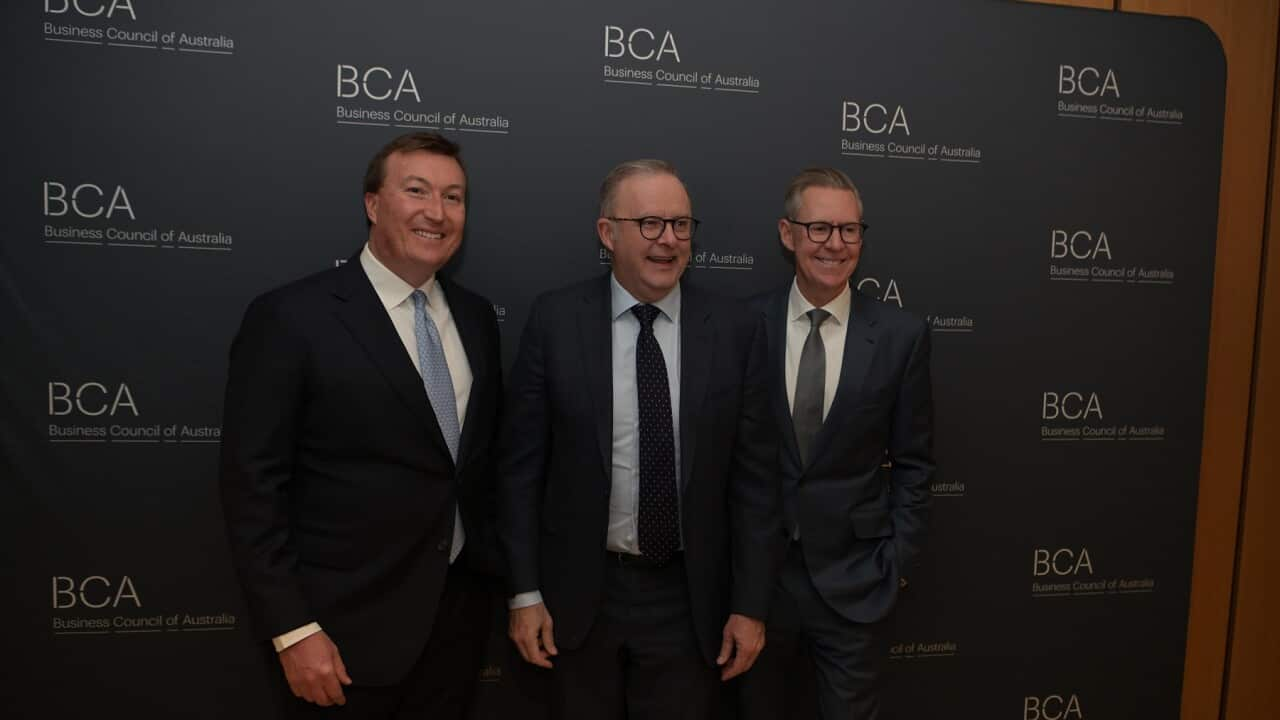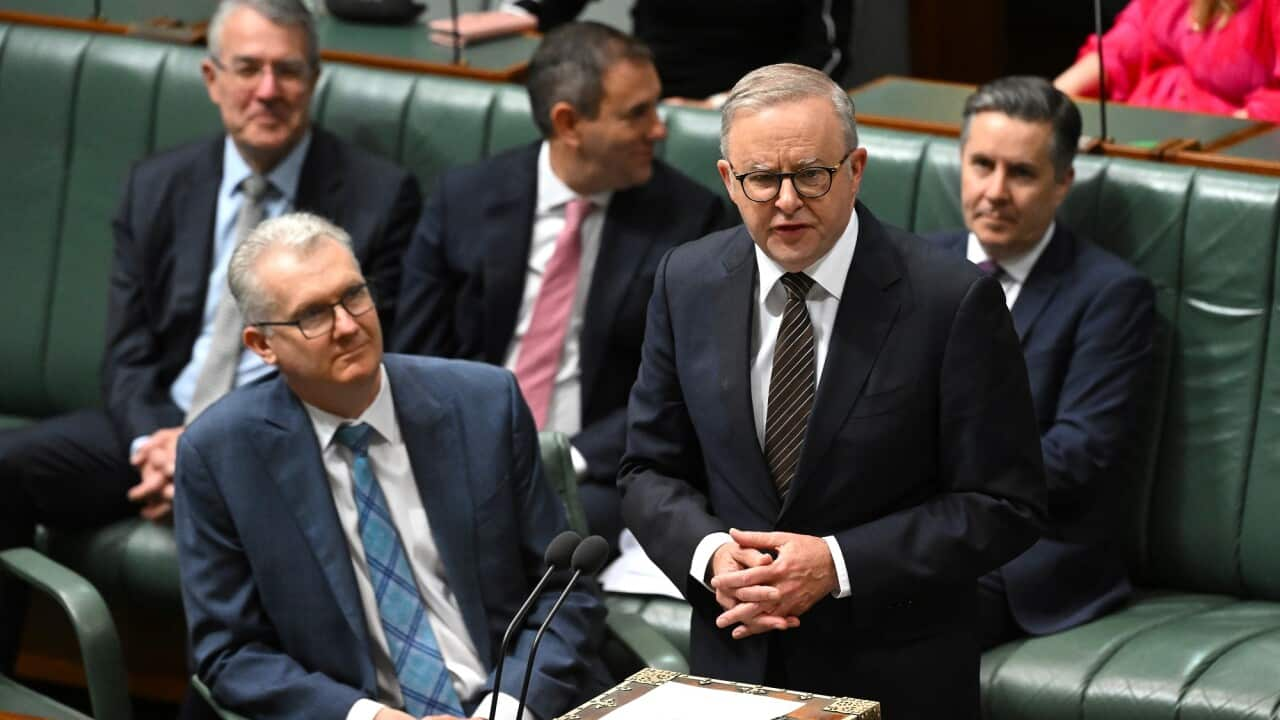TRANSCRIPT
"I lead a government that is proudly pro-business and pro-worker. And we don’t see this as a point of tension, we see it as a matter of logic. We understand secure jobs and fair wages depend on thriving businesses, just as we know productivity gains depend on skilled workers and safe workplaces."
That's Prime Minister Anthony Albanese addressing the Business Council of Australia's annual dinner.
Spruiking the Labor Party as a party for businesses, not just a party for workers.
"We’ve stood up for some of Australia’s biggest employers, when others have attacked you for holding a view different to their own. We don’t do any of this because it’s politically convenient, it's certainly not, from time to time. We do it out of respect for what you do, and because we value what you say. "
When Labor came to power, jobs were at the top of the agenda.
And businesses were open to working with them.
The government opened the doors of Parliament House, hosting business groups alongside unions, academics, and other industry stakeholders for a Jobs and Skills summit just three months after taking office.
The outcome was a plan for boosting jobs and skills, and the economy - along with a plan for improving workers’ rights.
Since then, the parliament has passed five pieces of industrial relations legislation.
Chief Executive of the Business Council of Australia, Bran Black, says that legislation is making it hard for business to operate.
"We must get back as quickly as possible to having employers and employees reach agreements for their workplaces that reflect the fact that every workplace is genuinely unique, rather than seeing more top-down, one-size-fits-all approaches to policy. Abolishing multi-employer bargaining must be seen as a priority in this regard."
That multi-employer bargaining rule is a sticking point.
In 2022, the Secure Jobs, Better Pay laws passed parliament, allowing employees from multiple employers to bargain collectively, and be covered by the same enterprise agreement.
From the start, businesses have had concerns about its impact on competition in the economy, saying it undermines engagement in the workplace.
Industrial Relations and Labour market expert with the University of Sydney, Associate Professor Chris Wright, says businesses haven't given the laws a chance.
"They didn't like the legislation when it came in. They didn't look at the evidence about the benefits of multi-employer bargaining in other countries. And the so the criticisms that they're making are based on an instinctive dislike of these types of arrangements, which generally are good for workers, but they can also be good for employers too. They can create more certainty around costs. They can help to attract and retain workers, to address skill shortages."
Last year, a bill imposed a same job, same pay principle, to ensure labour hire workers were paid the same as permanent employees.
Something strongly opposed by Tania Constable from the Minerals Council of Australia, who says the government is reverting to bad, old practices.
"We need the government to explain why it is determined to tear up successful workplace arrangements and drag us back to the failed ways of the past. We do want cooperation, we don't want conflict. But under these laws, conflict has been brought upon us."
Last month, changes to the definition of casual work came into effect, alongside the right for employees to disconnect from work.
Mr Black says the extent of regulation is hurting business.
"Of course, no issue is more pressing for Australians right now than the cost-of-living challenge. The real answer, as any good economist will tell you, is that we need to become more productive. That is the only thing that really matters in the long term when it comes to improving quality of life. It means less red tape and regulation, more flexible workplace laws, a simpler planning system and more efficient tax systems."
But Professor Wright says the burden of the Industrial Relations laws is minimal.
"Any time any laws change in any with any respect to business, there's an adjustment period. So there will be an adjustment period with these laws too, but businesses have to deal with a range of different regulations around all sorts of things. Employment is one of those."
Most of the industrial relations changes were not released by the Labor Party before the last election.
With an election within the year, the government wants businesses on board.
But that may be challenging, with Workplace Relations Minister Murray Watt not ruling out introducing new changes if they win a second term.
"Governments always take item to an agenda and then deliver extra things after they're elected and you've got to make a judgment about whether you think that's within the spirit of your mandate or not. Governments do things as situations emerge but, of course, you know, I'm sure we'll have something to say about workplace relations before the next election."













